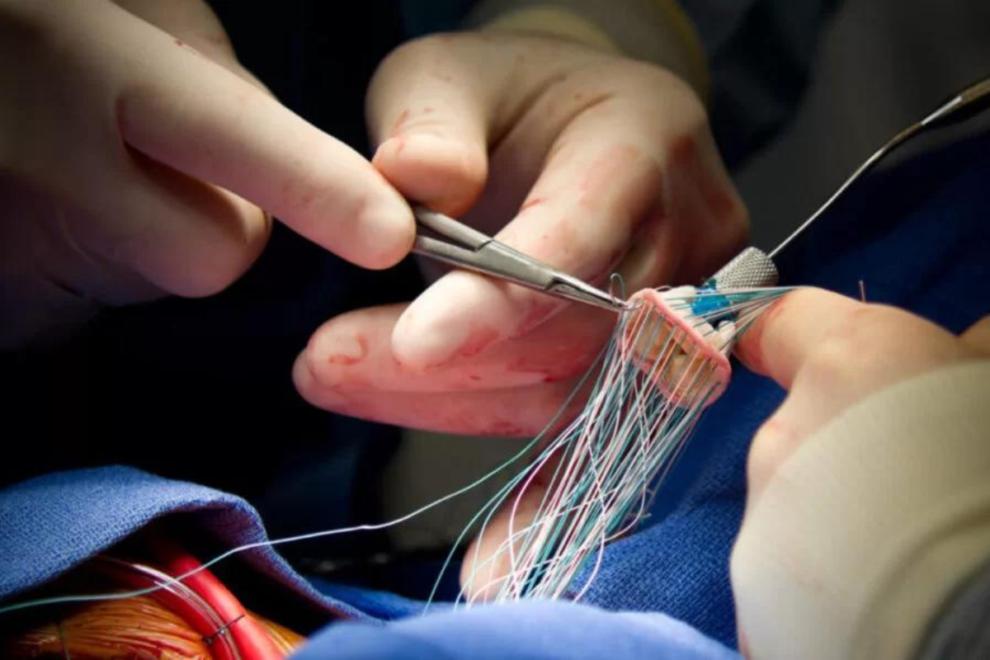Valve repair can usually be done on congenital valve defects (defects you are born with) and has a good success record with treating mitral valve defects.
Valve Repair Surgery and Cost india
This coordinated mechanism is crucial for maintaining efficient circulation and ensuring that oxygen-rich blood reaches the body while oxygen-poor blood is sent to the lungs for oxygenation. Proper valve function is essential for overall cardiovascular health.


Free Doctor opinion
What is valve repair?
What is valve replacement?
Severe valve damage means that the valve will need to be replaced. Valve replacement is most often used to treat aortic valves and severely damaged mitral valves. It is also used to treat any valve disease that is life-threatening. Sometimes, more than one valve may be damaged in the heart, so patients may need more than one repair or replacement.
There are 2 kinds of valves used for valve replacement : –
- Mechanical valves, which are usually made from materials such as plastic, carbon, or metal. Mechanical valves are strong, and they last a long time. Because blood tends to stick to mechanical valves and create blood clots, patients with these valves will need to take blood-thinning medicines (called anticoagulants) for the rest of their lives.
- Biological valves, which are made from animal tissue (called a xenograft) or taken from the human tissue of a donated heart (called an allograft or homograft). Sometimes, a patient’s own tissue can be used for valve replacement (called an autograft). Patients with biological valves usually do not need to take blood-thinning medicines. These valves are not as strong as mechanical valves, though, and they may need to be replaced every 10 years or so. Biological valves break down even faster in children and young adults, so these valves are used most often in elderly patients.
Here are some procedures surgeons may use to repair a valve : –
- Perhaps stuck together:- The surgeon opens the valve by cutting the points where the leaflets meet.
- Valvuloplasty: – which strengthens the leaflets to provide more support and to let the valve close tightly. This support comes from a ring-like device that surgeons attach around the outside of the valve opening.
- Reshaping: – where the surgeon cuts out a section of a leaflet. Once the leaflet is sewn back together, the valve can close properly.
- Decalcification: – which removes calcium buildup from the leaflets. Once the calcium is removed, the leaflets can close properly.
- Repair of structural support: – which replaces or shortens the cords that give the valves support (these cords are called the chordae tendineae and the papillary muscles). When the cords are the right length, the valve can close properly.
- Patching: – where the surgeon covers holes or tears in the leaflets with a tissue patch.
Why the Procedure is Performed ?
Heart valve surgery may be recommended for the following conditions : –
- Narrowing of the heart valve (stenosis)
- Leaking of the heart valve (regurgitation)
Valve problems may be caused by : –
- Birth defects
- Calcium deposits (calcification)
- Infections such as rheumatic fever
- Medications
Defective valves may cause congestive heart failure and infections (infective endocarditis).
Risks The risks for any anesthesia include : –
- Problems breathing
- Reactions to medications
The risks for any surgery include : –
- Bleeding
- Infection
The risks for cardiac surgery include : –
- Death
- Heart attack
- Irregular heartbeat (arrhythmia)
- Kidney failure
- Stroke
- Temporary confusion after surgery due to the heart-lung machine
It is very important to take steps to prevent valve infections. You may need to take antibiotics indefinitely, or before dental work and other invasive procedures.
What is the Mitral Valve?
The mitral valve (named after a Bishop’s miter) is the “inflow valve” for the main pumping chamber of the heart, the left ventricle. Blood flows from the lungs, where it picks up oxygen, across the open mitral valve and into the left ventricle. When the heart squeezes, the two leaflets of the mitral valve snap shut and prevent blood from backing up to the lungs. Blood is directed out of the heart to the rest of the body through another valve, the aortic valve.
What is Minimally Invasive Valve Surgery?
lve surgery can only be done in certain patients. This type of surgery cannot be done in patients
- With severe valve damage
- Who need more than one valve repaired or replaced
- Who have clogged arteries (atherosclerosis)
- Who are obese
Read Also :-
Committed To Build Positive, Safe, Patient Focused Care.
High Quality
Care
Home Review
Medicine
All Advanced
Equipment
Book An Appointment

At We Care India, we offer complete medical services for your entire family, from routine check-ups to injury care, ensuring personalized attention and expert assistance for all your health needs.


